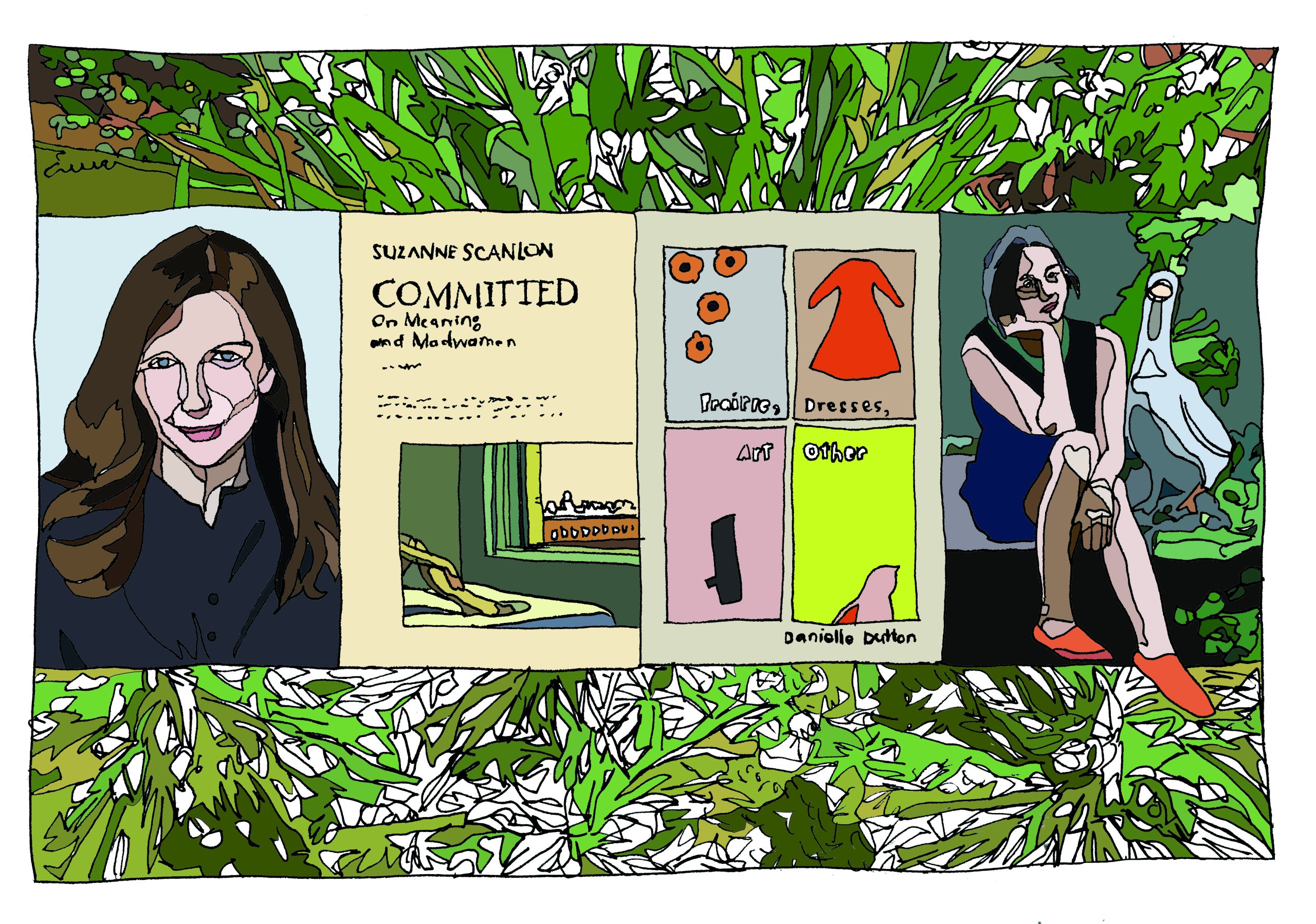news
Great Literary Awakening
I’ve had more than one Great Literary Awakening, but perhaps the one that is easiest to define took place about ten years ago. I had just formally dropped out of high school, was about to take the test to get my GED. I spent the days working at my first full-time job, 40 hours a week at the local Barnes & Noble. The nights — I spent those drinking pink wine and yellow beer in dirt lots, and sometimes in the swimming pools of the nearby apartment complexes that had less-than-stellar security systems.
As an employee of B&N, I received a hefty employee discount. Additionally, I was allowed to check out any hardcover as though it were a library book, and also keep any mass-market paperback that had been stripped. But this was not enough for me. Like most of my coworkers, I decided that my compensation for getting paid just over minimum wage to deal with assholes who wanted Thomas Kinkaid picture books and copies of Who Moved My Cheese was to steal anything I wanted. And so I stole. Hundreds of books, anything that sounded the least bit interesting or appealing. Aleister Crowley’s biography. Hardcover copies of the latest Chick Lit. Tarot decks, CDs, dozens of Moleskin notebooks, brightly colored backpacks from the children’s section. And novels, more novels than I could ever hope to finish.
Access to this quantity of books did two things to my reading habits. One, it eliminated any feelings of commitment I may have had about reading bad books. Now, if a book didn’t immediately grab my interest, I discarded it, went on to the next thing. There were simply too many books and too little time to be reading anything that I found to be subpar. Second, it allowed me to voraciously consume any sub-sub-sub genre that I could identify. I had always loved the type of books where the main characters do drugs and have sex and listen to music, but now I had access to dozens of books where, say, the main characters did drugs and had sex and listened to music in Asian locales.
I picked up Jessica Hagedorn’s The Gangster of Love during this time period, and I loved it. The Filipino overtones seemed magical and exotic, warm weather and leftover Catholicism blended together so satisfyingly with the California that I already knew. Then I picked up Dogeaters and loved it equally. Then, not exactly coincidentally, I began dating a Filipino-Californian boy, which was punctuated by his mother’s adobo, drug use, and domestic abuse, and ended with a restraining order. My love affair with all things Filipino came to a crashing end.
Last night, I went over to powerHouse books to hear Jessica Hagedorn read from her new novel, Toxicology. I haven’t thought too much about Hagedorn’s books since then — I re-read The Gangster of Love a couple years ago, and I recommended her to a fellow classmate in my writing program who writes on similar themes. But, nonetheless, I wanted to see her. I feel an appreciation for her role in one of my Great Literary Awakenings.
Hagedorn is now “a woman of a certain age,” as she said. But she still looks hip and beautiful, with her stylishly cropped and highlighted hair. The crowd seemed to feel as much affection for her as I did, and erupted into the kind of WOOOOOOs when she took the stage that are much more common at rock concerts than at literary readings. Hagedorn told us about how the evening came to be, with her walking home in the West Village and running into her friend, actress Kathleen Chalfant. It was decided that Chalfant would join Hagedorn at her book party opening, and help her do a dramatic reading from a section of the book.
The section is an interview scene, in which a reclusive eighty-year-old writer reluctantly gives an interview to a literary magazine that hopes to give the author a new readership. Hagedorn read the part of the interviewer, and introduced the writer, Ms. Eleanor Delacroix. Here, the line between reality and fiction began to blur, as Hagedorn introduced Delacroix/Chalfant as if she were a real writer, with a lengthy bio full of interesting and varied accomplishments. She was asked about her first book, which was described by critics as both “pretentious filth masquerading as high art” and “a landmark of avant-garde feminist lesbian erotic fiction” (if only it were real! Because I would love to read this book). She was also asked why she hadn’t written a book in nineteen years (“because I made a conscious decision to not be as fucking prolific as some of my contemporaries”) and told that she has 861 fans on Facebook. The dramatic reading between the two women was lively and engaging, and pointed to Hagedorn’s skills as a playwright.
The evening closed with a Q&A session, in which Hagedorn talked about her infatuation with fame (it’s a state of extremes, and also when she grew up, fame for an artist meant that they were exceptionally good at something), and what she plans to do next (Hagedorn may write a book using the fourteen-year-old girl in Toxicology because “she’s mean,” and writing about her would be a lot of fun).
All in all, it was a good way to spend an evening returning to my literary beginnings. It’s nice when things are just as appealing as you remembered them.
–Julia Jackson is working on her MFA in fiction at Brooklyn College, and is a regular contributor for Electric Dish.









